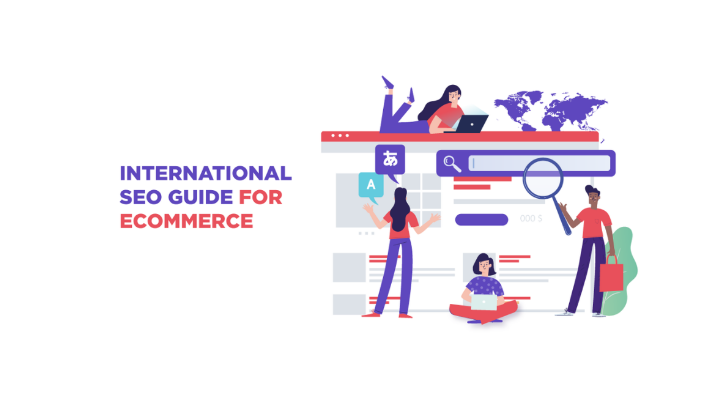E-commerce SEO for International Markets

In today’s digital age, e-commerce has become a thriving industry with global reach. With the rise of online shopping, businesses are increasingly looking to expand their presence in international markets. However, to succeed in foreign markets, it is crucial to implement effective search engine optimization (SEO) strategies tailored to each target market. This article will provide you with a ecommerce seo guide for international markets, enabling you to optimize your online store and drive organic traffic from around the world.
Table of Contents
- Introduction to E-commerce SEO
- Researching International Markets
- Keyword Research and Localization
- International Website Structure
- Multilingual Content Creation
- International Link Building
- Mobile Optimization for International Markets
- Tracking and Analytics
- Continuous Monitoring and Optimization
- Conclusion
- FAQs
- How long does it take to see results from SEO for ecommerce in international markets?
- Is it necessary to translate the entire website for international markets?
- How important are local keywords in international SEO?
- Should I focus on organic or paid advertising for international SEO for ecommerce?
- How can I measure the success of my international e-commerce SEO efforts?
Introduction to E-commerce SEO
E-commerce SEO is the process of optimizing an online store to rank higher in search engine results pages (SERPs) and increase organic traffic. When targeting international markets, it becomes even more critical to adapt your SEO strategy to the specific needs and preferences of each market. By implementing the right techniques, you can improve your visibility, attract relevant visitors, and increase your conversion rates.
Researching International Markets
Before expanding your seo for ecommerce business into international markets, thorough market research is essential. This involves analyzing market trends, competition, consumer behavior, and cultural nuances. By gaining insights into each target market, you can tailor your SEO approach accordingly and maximize your chances of success.
Keyword Research and Localization
Keyword research forms the foundation of any effective SEO strategy. However, when targeting international markets, it is vital to go beyond translating keywords. Localize your keyword research by understanding how people in each market search for products and services. Consider linguistic differences, local search trends, and cultural sensitivities to identify the most relevant and impactful keywords.
International Website Structure
Creating a well-structured website is crucial for both user experience and search engine visibility. For international markets, it is recommended to adopt a country-specific structure or subdirectory approach. This allows you to create separate sections or subdirectories for each target market, making it easier for search engines and users to identify the relevance of your content.

Multilingual Content Creation
To effectively engage with international audiences, it is essential to provide multilingual content on your e-commerce website. Translate your product descriptions, category pages, blog posts, and other relevant content into the languages spoken in your target markets. Ensure the translations are accurate, culturally sensitive, and capture the essence of your brand.
International Link Building
Building a strong backlink profile is vital for SEO success, including in international markets. Focus on acquiring high-quality backlinks from reputable websites relevant to each target market. Collaborate with local influencers, engage in guest blogging, and foster relationships with industry partners to gain valuable backlinks that improve your website’s authority and rankings.
Mobile Optimization for International Markets
Mobile devices play a significant role in online shopping worldwide. When targeting international markets, prioritize mobile optimization to cater to the preferences and behaviors of mobile users. Ensure your website is mobile-friendly, loads quickly, and provides a seamless browsing and purchasing experience across different devices and screen sizes.
Tracking and Analytics
To measure the effectiveness of your seo for ecommerce efforts, it is crucial to implement robust tracking and analytics. Set up tools like Google Analytics or other suitable platforms to monitor website traffic, user behavior, conversion rates, and other key performance indicators (KPIs). Analyze the data regularly to identify areas for improvement and optimize your SEO strategy accordingly.

Continuous Monitoring and Optimization
E-commerce SEO is an ongoing process that requires continuous monitoring and optimization. Stay updated with the latest SEO trends, algorithm changes, and market dynamics in each target market. Regularly audit your website, conduct keyword research, and refine your content to ensure it remains relevant and competitive. Monitor your rankings, organic traffic, and conversion rates to make data-driven decisions and drive continuous improvement. Additionally, partnering with a reliable service provider for SEO can greatly assist in managing and implementing these strategies effectively.
Conclusion
Expanding your e-commerce business into international markets requires a strategic and tailored approach to SEO. By conducting thorough research, localizing your content, optimizing technical aspects, prioritizing user experience, and continuously monitoring and optimizing your website, you can increase your visibility, attract targeted traffic, and drive conversions in international markets.
FAQs
How long does it take to see results from SEO for ecommerce in international markets?
The timeline for seeing SEO results can vary based on several factors, such as competition, market saturation, and the effectiveness of your strategies. Generally, it takes several months to start seeing noticeable improvements, but long-term success requires ongoing efforts.
Is it necessary to translate the entire website for international markets?
While translating the entire website is ideal, you can prioritize key pages and content that are most likely to drive traffic and conversions. Start with product descriptions, category pages, and high-traffic landing pages.
How important are local keywords in international SEO?
Local keywords are crucial for international SEO as they help you align your content with the search intent and language preferences of local users. Conduct thorough keyword research to identify relevant local keywords for each market.
Should I focus on organic or paid advertising for international SEO for ecommerce?
It’s recommended to have a balanced approach. Organic SEO helps build long-term visibility and credibility, while paid advertising can provide immediate results. Experiment with both channels and allocate your budget based on your goals and resources.
How can I measure the success of my international e-commerce SEO efforts?
Use tools like Google Analytics to track key metrics such as organic traffic, keyword rankings, conversion rates, and revenue generated from international markets. Set specific goals and regularly analyze the data to measure the effectiveness of your SEO strategies and make data-driven decisions for further optimization.